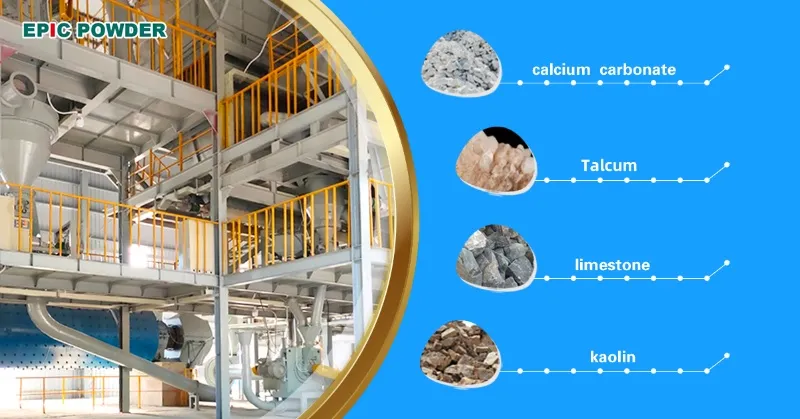Calcium powder primarily consists of calcium carbonate (CaCO₃), which is widely found in various rocks such as dolomite, calcite, chalk, limestone, and marble. This powder material has characteristics like a wide range of raw material sources, high whiteness, low oil absorption value, good applicability, non-toxic and harmless properties, and low cost, making it an essential raw material in various industries.
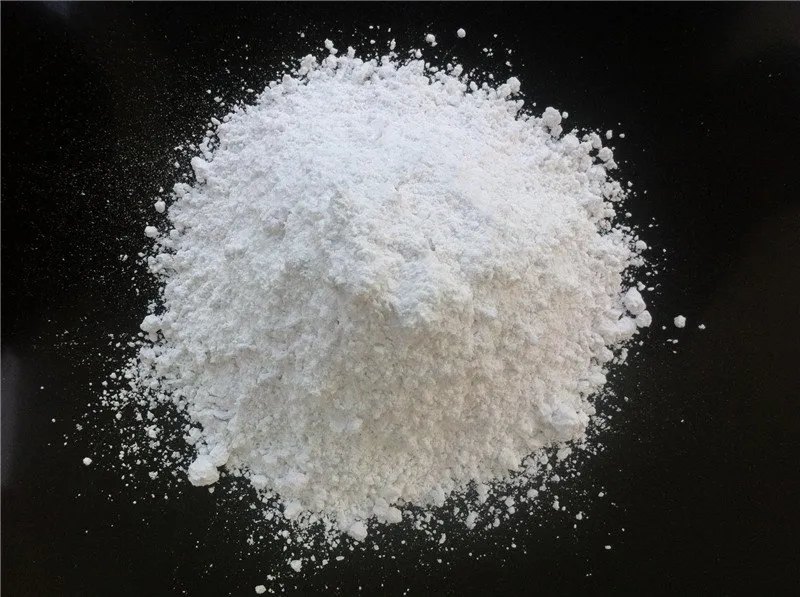
Three Key Standards for High-Quality Calcium Powder
Fineness: Proper fineness ensures uniformity and reactivity when calcium carbonate powders is mixed with other materials. The powder should be fine and uniform to better fulfill its purpose.
Purity: High purity calcium powders ensures the stability of product applications. Quality calcium carbonate powder should have a purity of over 90% to meet the needs of various industrial productions.
Whiteness: Whiteness is an important indicator of the aesthetic quality of industrial calcium powder. High-quality industrial calcium carbonate powders should have a high whiteness, free of impurities and black spots.
Calcium Powder: An Ubiquitous Essential Material
Plastic Industry: Reduces plastic manufacturing costs while enhancing the hardness, gloss, and flatness of plastics.
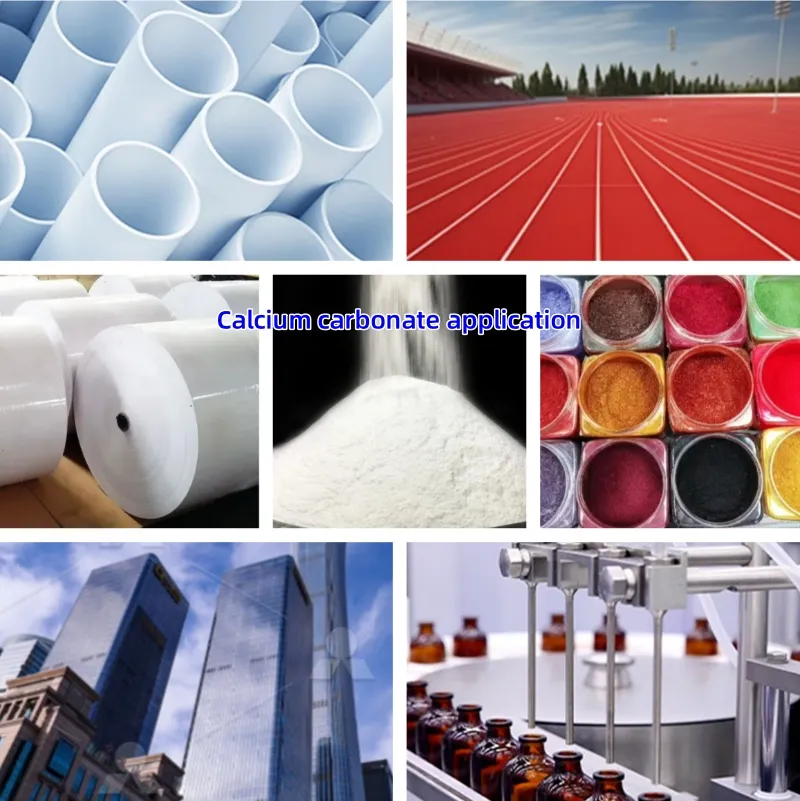
Rubber Industry: Improves the tensile strength, tear strength, and wear resistance of rubber products.
Papermaking Industry: Significantly enhances the opacity, brightness, smoothness, and uniformity of paper.
Coatings Industry: Improves the dispersion, gloss, and stability of coatings.
Construction Industry: Increases the toughness and strength of building materials while reducing costs.
Pharmaceutical Industry: Widely used in the production of capsules, tablets, injections, and other pharmaceutical products.
Calcium Powder Production Process
From raw material preparation to finished product delivery, every step must be strictly controlled and carefully operated. Only by doing so can stable quality and uniform particles be produced to meet the needs of various fields.
Ore Washing and Crushing
After mining, the raw calcium carbonate ore is first washed with water to remove dirt and sand, eliminating impurities. It is then crushed into smaller stones using crushers to improve grinding efficiency.
Grinding and Classification
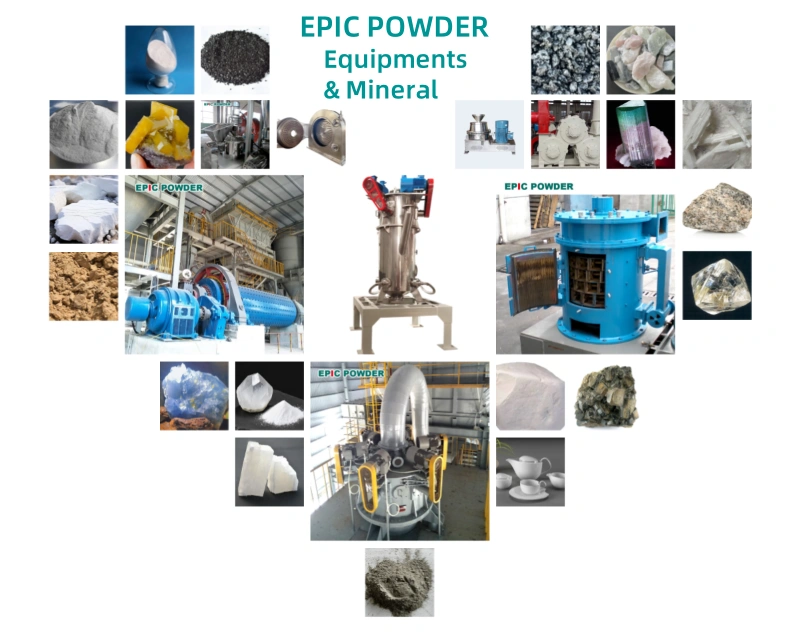
Grinding is the core step in calcium carbonate powders production. The crushed calcium stone enters the mill, where it is finely ground using equipment such as European-type mills or vertical mills. Depending on the requirement, the calcium powder can have a fineness of 200 mesh to 3000 mesh. The powder is sent out through classifiers, and collected by pulse dust collectors or cyclone collectors to ensure uniform fineness.
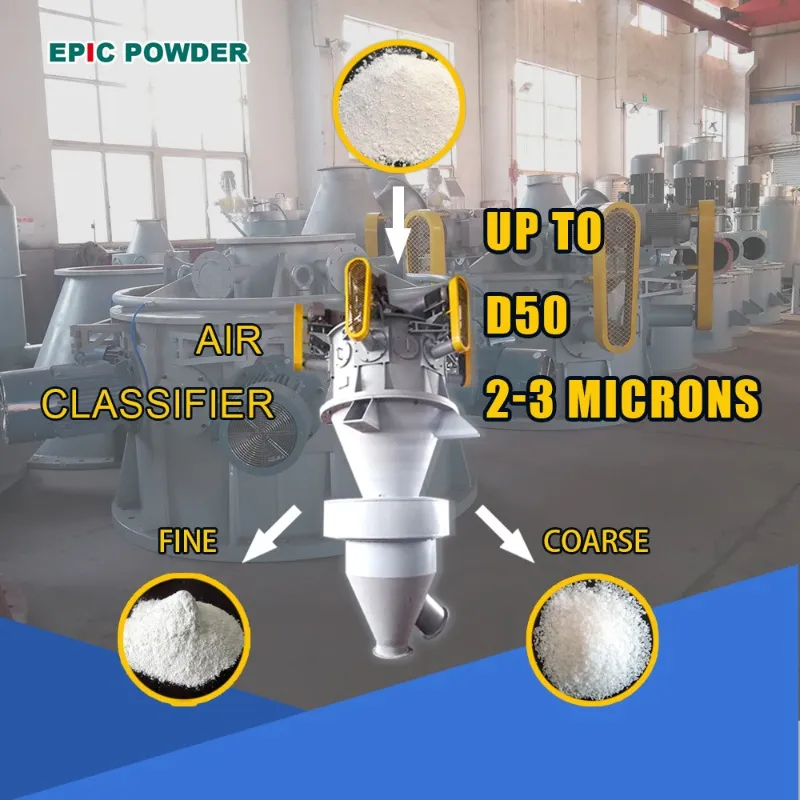
Packaging and Inspection
The calcium powder is packaged according to specifications and requirements, with common packaging methods including plastic bags and cartons. Quality checks are conducted on the packaged powder, including particle size, calcium content, and moisture content. Only the powder that meets the national standards and customer requirements will be stored in warehouses for shipment.
How to Choose Calcium Powder Production Equipment?
Epic Powder, with over 20 years of expertise in the ultrafine powder industry, provides high-quality calcium carbonate production solutions. Our advanced ball mill classification production lines ensure precise grinding and classification, while our surface modification equipment enhances the performance of your products. We focus on producing premium calcium carbonate powders that meets strict standards for fineness, purity, and whiteness. Our solutions optimize product quality and performance across industries, including plastics, rubber, paper, coatings, and pharmaceuticals. Partner with Epic Powder for reliable, efficient, and cost-effective calcium powder production.
